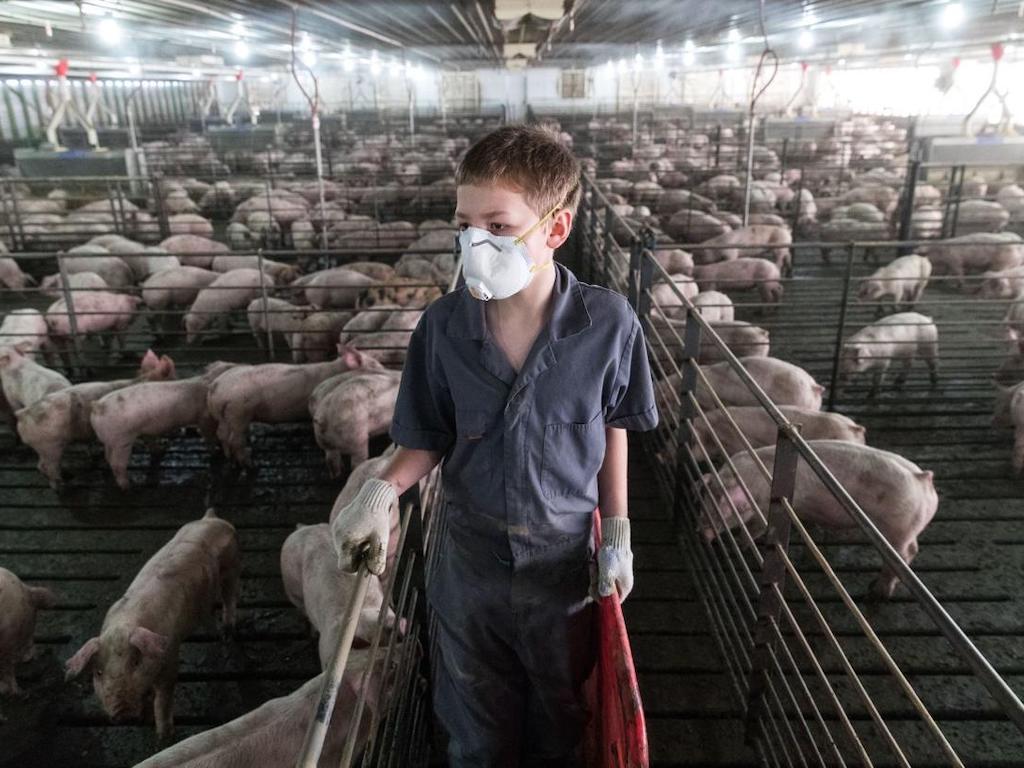3 Mins Read
Head of commodities research at Goldman Sachs, Jeff Currie, says that the two commodities standing on shaky ground right now are oil and livestock. Speaking to reporters last week, Currie’s forecast comes after weeks of worrying news headlines spotlighting the chaos that the coronavirus has wreaked on the animal meat industry. Food security experts believe that the global food supply chain must make a drastic shift away from traditional animal agriculture moving forward in order to save both human and animal lives, as well as the environment.
In a video conference with news reporters last week, the global head of commodities research at the American multinational investment bank said he believes the two big commodity “stories” to watch in 2021 will be oil and livestock.
“They both share something in common – you do damage to the supply, it takes a while to bring it back online again. We had a problem with livestock going into [the crisis]…we now have a very serious problem,” said Currie.
Coronavirus has wreaked havoc on meat supply chains. While slaughterhouses and meat packing facilities all over the world are battling outbreaks, forcing shutdowns and supermarket shortages, livestock farmers and dairy producers are now having to cull millions of animals, often in inhumane ways.
At the same time, the demand for food banks is at an all-time high, with the economic impact of the coronavirus leading to millions unemployed.
Travel restrictions and export bans have further flamed the chaotic food supply chain breakdown, making it virtually impossible to transport the few meat products available to areas experiencing shortages. Over the past weeks and months, confinement measures have been in place in over 180 countries and territories in a bid to stem the spread of the virus.
As a result, Currie said that he believes the only other commodity market “looking as precarious as oil,” which saw prices tumble into negative territory in the United States for the first time in history, was livestock.
Currie’s statement comes after Bank of America analysts said in a research note that the United States meat industry was likely to “suffer tremendous financial burdens” as a result of the crisis.
While meat takes a tumble, plant-based substitutes have come in to fill the void. Consumer interest has skyrocketed, with vegan meat sales in the United States jumping by a staggering 280% in March, when the pandemic began to take a severe toll on the country.
In Hong Kong, food delivery platform Deliveroo recorded a noteworthy 20% increase in vegan orders since the crisis struck the city in January.
As consumer demand for healthier, safer and more sustainable plant-based meat goes up, investors are also increasingly bullish on the alternative protein industry. Asian venture capital firms are actually ramping up investment into food techs developing crisis-resilient and planet-friendly proteins, and big-name industry giants are now looking to work with startups developing food solutions for the Chinese market.
The animal meat industry isn’t just battling the coronavirus, it’s also fighting several ongoing and reemerging livestock diseases. Pork supplies have taken a tumble since last year when the outbreak of African swine fever (ASF) decimated pig populations, and more recently there have been reports of avian flu resurfacing and a Div1 virus affecting shrimp farms.
Given the negative prospects for animal agriculture, a new industry report by the Good Food Institute (GFI) says that the cultivated and plant protein industry is poised to flourish after the pandemic is over.
Read our previous news coverage of Covid-19 here.
Lead image courtesy of Omaha World-Herald.




